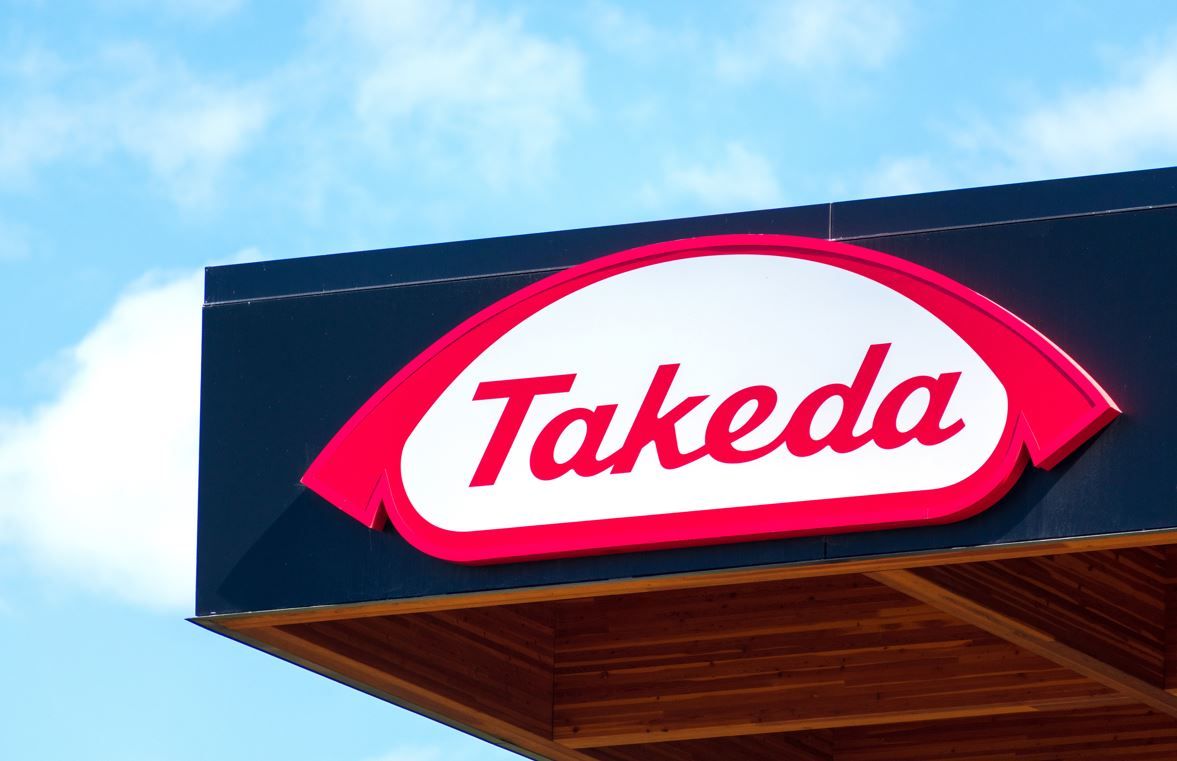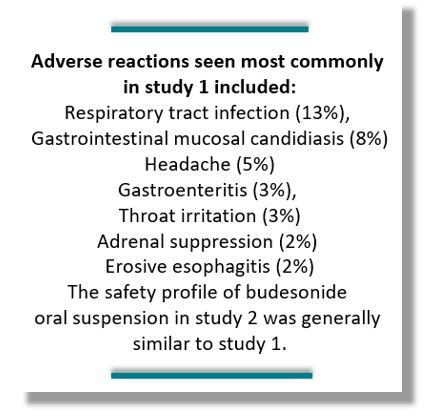- Clinical Technology
- Adult Immunization
- Hepatology
- Pediatric Immunization
- Screening
- Psychiatry
- Allergy
- Women's Health
- Cardiology
- Pediatrics
- Dermatology
- Endocrinology
- Pain Management
- Gastroenterology
- Infectious Disease
- Obesity Medicine
- Rheumatology
- Nephrology
- Neurology
- Pulmonology
Takeda Announces Approval of First Oral Therapy for Eosinophilic Esophagitis
Budesonide oral suspension is the first oral therapy for EoE and represents a needed option in the category, offering flexibility for both patients and clinicians.

Budesonide oral suspension, to be marketed under the brand name Eohilia, was approved by the US Food and Drug Administration (FDA) today, becoming the first oral therapy indicated for treatment of eosinophilic esophagitis (EoE) in people aged 11 years and older, according to an announcement from manufacturer Takeda. The treatment is indicated for 12 weeks of use and has not been shown safe and effective for a longer period, Takeda noted.
The product will be available in 2-mg single dose stick packs by the end of February, the company said.
The novel oral formulation of the corticosteroid budesonide was designed specifically to address the pathology of EoE, with thixotropic properties that allow it to flow more freely when agitated and return to a viscous state when swallowed.
“Various formulations of corticosteroids have been used in the past to manage EoE, but in an off-label capacity and using multiple delivery options. With Eohilia, it’s gratifying to now have an FDA-approved treatment specifically formulated for a consistent dose delivery with demonstrated ability to address esophageal inflammation and EoE dysphagia symptoms,” Ikuo Hirano, MD, professor of medicine and director of the Kenneth C Griffin Esophageal Center in the Division of Gastroenterology and Hepatology at Northwestern University Feinberg School of Medicine said in the press announcement. “As the treatment needs and goals of patients with EoE can vary, I welcome the flexibility that Eohilia offers as an oral medication.”
Data for the FDA approval come from 2 multicenter, randomized, double-blind, parallel-group, placebo-controlled 12-week studies (study 1 and study 2). Study 1 was conducted in persons with EoE aged 11 to 56 years and study 2 in those aged 11 to 42 years. Across both studies, participants received at least 1 dose of either budesonide oral suspension 2 mg twice a day or an oral placebo twice a day, the statement said. There were 2 primary efficacy endpoints, one quantitative and one qualitative. For the former, investigators evaluated histologic remission, measured as peak eosinophil count of 6 or fewer per HPF across all available esophageal levels. For the qualitative assessment, the researchers observed the absolute change from baseline in the patient-reported Dysphagia Symptom Questionnaire (DSQ) combined score after 12 weeks of treatment with budesonide oral suspension. DSQ scores reflect the frequency of difficulty swallowing and adaptive behaviors used in response, all as reported directly by the person with EoE, according to Takeda.
When compared to placebo-treated participants, significantly more participants on active treatment in study 1 reached histologic remission (53.1% vs. 1%). Findings were similar and also significant in study 2, with 38% of participants who received budesonide oral suspension achieving histologic remission vs 2.4% of those treated with placebo.

The absolute change from baseline in DSQ combined score significantly favored budesonide oral suspension vs placebo in both studies: study 1, 10.2 (1.5) vs -6.5 (1.8); and study 2, -14.5 (1.8) vs. -5.9 (2.1). Further, the company reported, during the final 2 weeks of each study, more participants on active treatment reported having no dysphagia or that symptoms they did experience “got better or cleared up” on their own vs those on placebo. Adverse reactions were similar in both studies (at left).
A chronic, progressive immune-mediated disease, EoE is driven by type 2 inflammation that damages the esophagus, disrupting proper function. Although the etiology is poorly understood, certain foods and environmental allergens are among the stimuli observed to be triggers. Among the symptoms, which can vary by person as well as by age, are difficulty swallowing, vomiting, and pain. Delayed diagnosis is common and dangerous, according to evidence Takeda cites, since prolonged inflammation may lead to esophageal narrowing and the potential for food impaction.
“For most of us, eating is a simple experience. But for people living with eosinophilic esophagitis, sitting down for a meal can include painful and difficult swallowing, chest pain and a choking sensation,” said Brandon Monk, senior vice president and head, US Gastroenterology Business Unit, Takeda. “With EOHILIA, patients and their physicians now have the first and only FDA-approved oral treatment option for EoE that was shown during two 12-week clinical studies to reduce esophageal inflammation and improve the ability to swallow.”
Takeda advised that budesonide oral suspension is contraindicated in anyone who has a hypersensitivity to budesonide. Serious hypersensitivity reactions, including anaphylaxis, have occurred with oral budesonide products.
Source: FDA approves Takeda’s EOHILIA (budesonide oral suspension), the first and only oral treatment in the US for eosinophilic esophagitis (EoE). New release. Takeda. February 12, 2024. Accessed February 12, 2024. https://www.takeda.com/newsroom/newsreleases/2024/fda-approves-eohilia/
Clinical Tips for Using Antibiotics and Corticosteroids in IBD
January 5th 2013The goals of therapy for patients with inflammatory bowel disorder include inducing and maintaining a steroid-free remission, preventing and treating the complications of the disease, minimizing treatment toxicity, achieving mucosal healing, and enhancing quality of life.
